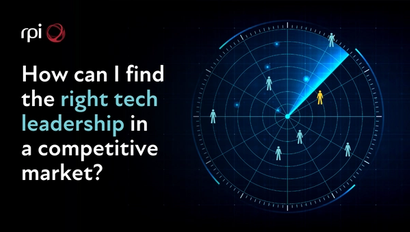Data and technology are not an 'IT' problem. At least, they shouldn't be. In an age where every business is trying to differentiate itself with data, software, platforms and apps, treating data and technology as something you can 'add on' through IT is not enough. They need to become an intrinsic part of the business — something that everyone can affect, own and learn from. They should empower all aspects of the business to make better decisions, ask better questions, and scrutinise their activity.
If you want to become a data-driven, technology-empowered business, you need to democratise your data: making it a useful resource that's accessible to everyone.
Here are the processes and technologies you need to demystify your data.
Data governance
Your data governance could make or break how your organisation relates to data, and there’s an incredibly difficult balance to strike.
On one hand, there need to be non-negotiable rules and procedures which protect the integrity of the data. On the other, people need the autonomy and trust to use data as they see fit. That could appear paradoxical, but the first is what allows the second to happen. When the company is well established in its procedures, it can be confident that however teams and individuals experiment with how they use data, it won’t jeopardise data integrity.
The data governance that supports this must be extremely well structured and effectively communicated – you can’t have robust data governance if people don’t understand what’s expected of them. The company should have an ultimate data authority (a CDO for example), as well as data champions who can support and encourage data best practice. It’s also vital that the company doesn’t see data as the sole responsibility of data leaders and managers — they are there to assist and lead, not micromanage everyone’s data habits.
Software
There are lots of technologies available that can help you to better connect people and data in your business.
One route is Enterprise Resource Planning (ERP), which integrates a business’ different systems and processes. Each department maintains its own system, but the ERP software allows users to access data through one interface. That allows the company as a whole to link its data rather than let it sit in silos, with the obvious advantages that the improved visibility allows: synchronisation, real-time reporting, budgeting, and forecasting, among others.
If you’re considering implementing or improving an ERP programme, a low- or no-code option could be the best fit. As the names suggest, those require little coding or none at all. That means more people can set up and customise the system, which results in:
- A greater level of buy-in. When users can ‘create’ a system that serves their needs, they feel a greater investment in the process than if they’d had a programme imposed on them
- A wider user pool. When few or no coding skills are required, the barriers to entry are reduced, and ERP becomes more accessible.
To complement ERP, analysis and intelligence tools allow team members to use data for predictive or descriptive reporting. Business Intelligence software is the most accessible in that it doesn’t require the ability to create mathematical models. It uses data to describe what has already happened, while business analytics uses that data to predict trends.
Anyone should be able to run a Business Intelligence report, and those with data modelling skills should feel at home with Business Analytics. Your company may need one or both of them, and that will depend on your goals and strategy. Regardless of the specific suite of tools you choose, the underlying principle must be that the company at large feels engaged with data.
Another data-centric option is Master Data Management (MDM) which can help you to collate data and create a ‘single version of the truth’ on every data entry, meaning that the same information is always available wherever it’s needed. MDM can be used in connection with ERP to make sure central data flows remain accurate and accessible.
Training
Business-wide engagement will only truly flourish when it’s underwritten by skills. The project of data democratisation requires informed and able users who:
a) know how to use data
b) know why it’s important
Too many organisations forget the second point. They train their teams, thinking that skills are the only thing lacking, but fail to appreciate that real data literacy isn’t a box-ticking exercise — it’s seeing the value in data and being motivated to use that knowledge.
Much of the success of data training will come from how you package and present it. Not every team member will appreciate data, even if they have an aptitude for it, so to them training could be an imposition that they resent. It’s important to offer a benefit-led message to show your teams how data can resolve their frustrations. That starts by discussing what those frustrations are.
You’ll have noticed that this approach to training has taken on the appearance of a sales cycle, because that’s exactly what it is: you’re seeking emotional buy-in, and you need your audience to take definite action. You can’t command a data culture into existence any more than you can command a prospect to buy.
Because of the intersection of sales, leadership, and data skills that this project requires, you need people with a rare combination of commercial experience and technological expertise to lead it, so that they can speak with authority about data, and also ‘sell’ the initiative effectively.
For your guide to reaching your business goals through data, download our whitepaper ‘X marks the spot: a data map to reaching your business goals’.
To find the business leaders, commercial minds, and data experts to guide your data journey, contact people@rpint.com.



